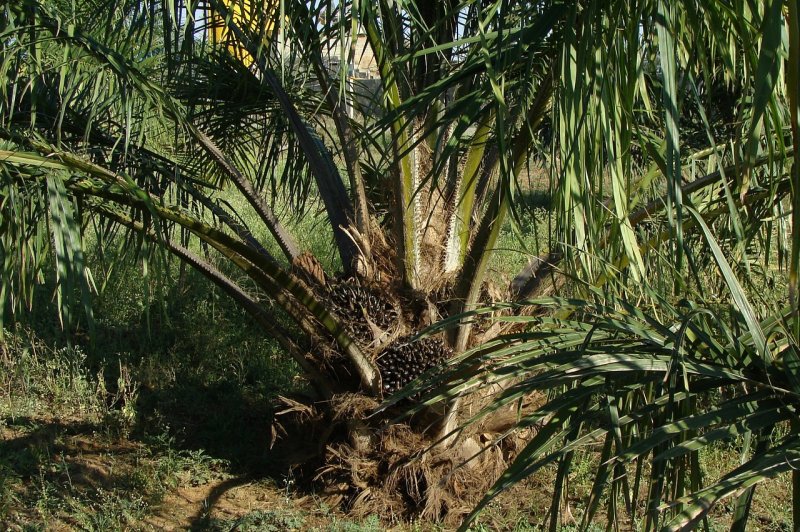While some alternative natural oils could satisfy a portion of the demand for palm oil, researchers say scaling up production of many other oils presents additional problems. Photo by
sarangib/Pixabay
March 10 (UPI) -- Researchers are currently working to find, develop and scale the production of possible synthetic replacements for palm oil, but the process could take years.
In the meantime, a trio of scientists have called for more sustainable palm oil practices, detailing a plea for more eco-friendly palm oil in a paper published this week in the journal Nature Sustainability.
Because none of the current palm oil replacements are economically viable at scale, and because demand for palm oil is unlikely to decline, it makes sense for governments and policy makers to focus on making the palm oil production process more friendly to the environment.
"Palm oil is the most widely used land-grown oil crop, and expansion in the market over the past few decades has led to increases in greenhouse gas emissions and the loss of biodiverse tropical forest areas to farming," study co-author Chris Chuck, professor of chemical engineering at the University of Bath in Britain, said in a news release. "Whilst action is being taken to improve the sustainability of palm oil cultivation it is not happening as effectively or quickly as it needs to."
For the study, scientists analyzed the viability of different replacement possibilities, including existing crop oils, alternative tropical oils and microbial single cell oils.
"Palm oil is challenging to replace as a product because it is very versatile -- it is used in a wide range of cooking, food and other consumer goods products, as well as fuels -- but it's also cheap to produce compared to the alternatives," said lead study author Sophie Parsons, also a mechanical engineer at Bath.
Although some alternative natural oils could satisfy a portion of the demand for palm oil, researchers determined that efforts to scale up production of sunflower and rapeseed, or exotic oils like coconut oil and shea butter, would present their own technical and ecological problems.
"The only viable large-scale direct replacements are single cell oils from algae or yeast, but these require significant further development before being economically viable," Parsons said. "Governments in producing countries and industry should be working together closely to reduce the impact of the industry while synthetic alternatives are developed for the sake of our climate."
Due to the lack of viable alternatives, authors of the new study recommend governments do more to ensure palm oil farming doesn't extend into ecologically-valuable land. The authors also recommend governments do more to ensure farmers abide by the cultivation practices recommended by the Roundtable on Sustainable Palm Oil.
Currently, only 19 percent of the world's palm oil crops are Certified Sustainable Palm Oil. That number must increase if leaders and policy makers are to minimize the environmental impacts of palm oil.
While governments work to minimize the ecological impacts of their palm oil plantations, authors of the study suggest chemical engineers continue to identify the necessary steps to scale up the production of the most promising microbial oils, the best palm oil replacements.















